Jia Le Tian
RepoQA: Evaluating Long Context Code Understanding
Jun 10, 2024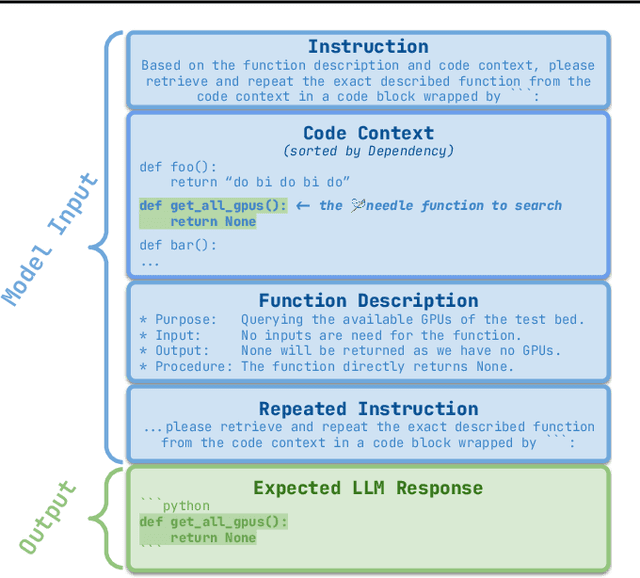
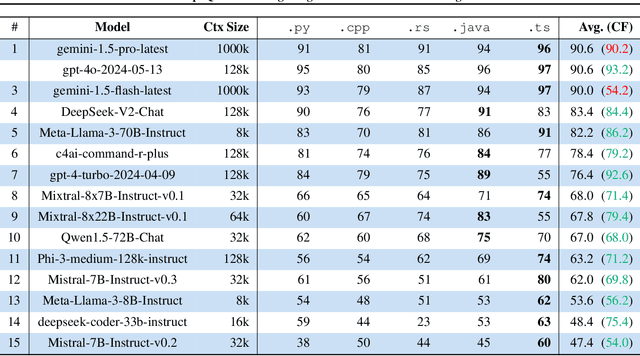
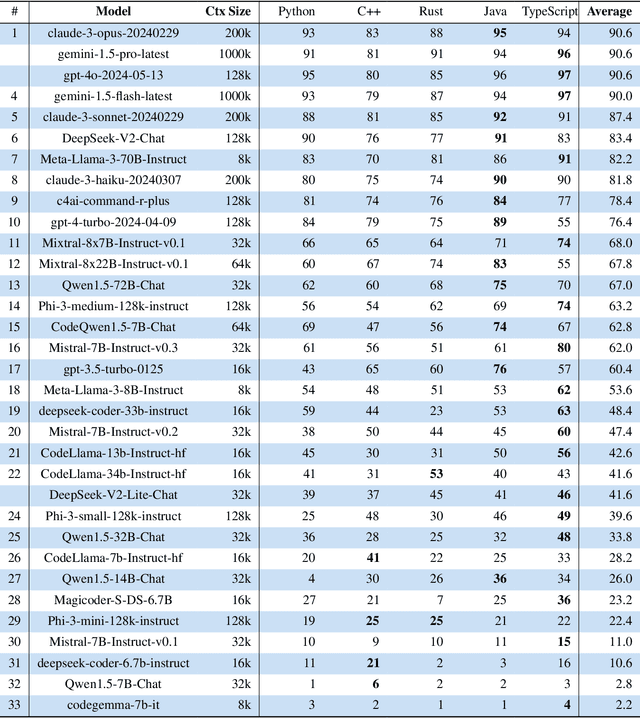
Abstract:Recent advances have been improving the context windows of Large Language Models (LLMs). To quantify the real long-context capabilities of LLMs, evaluators such as the popular Needle in a Haystack have been developed to test LLMs over a large chunk of raw texts. While effective, current evaluations overlook the insight of how LLMs work with long-context code, i.e., repositories. To this end, we initiate the RepoQA benchmark to evaluate LLMs on long-context code understanding. Traditional needle testers ask LLMs to directly retrieve the answer from the context without necessary deep understanding. In RepoQA, we built our initial task, namely Searching Needle Function (SNF), which exercises LLMs to search functions given their natural-language description, i.e., LLMs cannot find the desired function if they cannot understand the description and code. RepoQA is multilingual and comprehensive: it includes 500 code search tasks gathered from 50 popular repositories across 5 modern programming languages. By evaluating 26 general and code-specific LLMs on RepoQA, we show (i) there is still a small gap between the best open and proprietary models; (ii) different models are good at different languages; and (iii) models may understand code better without comments.
Universal Fuzzing via Large Language Models
Aug 09, 2023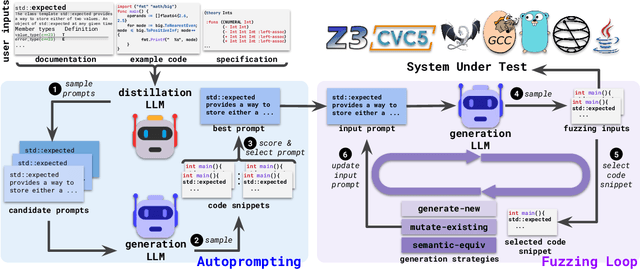

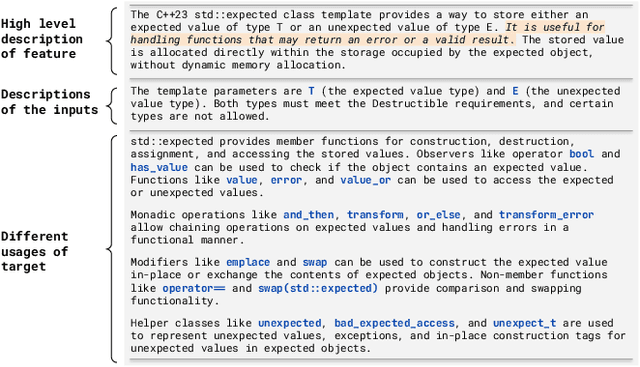
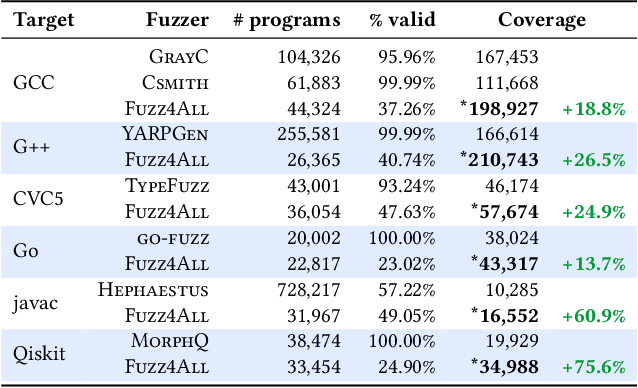
Abstract:Fuzzing has achieved tremendous success in discovering bugs and vulnerabilities in various software systems. Systems under test (SUTs) that take in programming or formal language as inputs, e.g., compilers, runtime engines, constraint solvers, and software libraries with accessible APIs, are especially important as they are fundamental building blocks of software development. However, existing fuzzers for such systems often target a specific language, and thus cannot be easily applied to other languages or even other versions of the same language. Moreover, the inputs generated by existing fuzzers are often limited to specific features of the input language, and thus can hardly reveal bugs related to other or new features. This paper presents Fuzz4All, the first fuzzer that is universal in the sense that it can target many different input languages and many different features of these languages. The key idea behind Fuzz4All is to leverage large language models (LLMs) as an input generation and mutation engine, which enables the approach to produce diverse and realistic inputs for any practically relevant language. To realize this potential, we present a novel autoprompting technique, which creates LLM prompts that are wellsuited for fuzzing, and a novel LLM-powered fuzzing loop, which iteratively updates the prompt to create new fuzzing inputs. We evaluate Fuzz4All on nine systems under test that take in six different languages (C, C++, Go, SMT2, Java and Python) as inputs. The evaluation shows, across all six languages, that universal fuzzing achieves higher coverage than existing, language-specific fuzzers. Furthermore, Fuzz4All has identified 76 bugs in widely used systems, such as GCC, Clang, Z3, CVC5, OpenJDK, and the Qiskit quantum computing platform, with 47 bugs already confirmed by developers as previously unknown.
 Add to Chrome
Add to Chrome Add to Firefox
Add to Firefox Add to Edge
Add to Edge